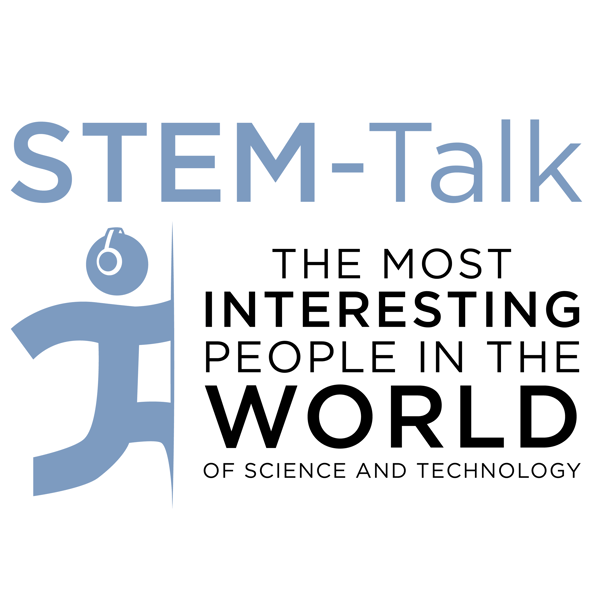Episode 110 : Tommy Wood talks about nourishing developing brains and the importance of metabolic health
STEM-Talk
Dawn Kernagis and Ken Ford
4.6 • 694 Ratings
🗓️ 4 August 2020
⏱️ 77 minutes
🧾️ Download transcript
Summary
Transcript
Click on a timestamp to play from that location
| 0:00.0 | Welcome to STEM Talk. |
| 0:01.2 | Stem Talk. |
| 0:02.0 | Stem Talk. |
| 0:03.0 | Stem Talk. |
| 0:04.0 | Stem Talk, where we introduce you to fascinating people who passionately inhabit the scientific and technical frontiers of our society. |
| 0:14.0 | Hi, I'm your host, Don Kornegas, and joining me to introduce today's podcast as a man behind the curtain, Dr. Ken Ford, IHMC's director and chairman |
| 0:22.0 | of the double secret selection committee that selects all the guests who appear on STEM Talk. |
| 0:25.9 | Hi, Dawn. Great to be here. Our guest today is making a repeat appearance on STEM Talk. |
| 0:32.2 | Dr. Tommy Wood, a UK trained physician who is now a research assistant professor of pediatrics in the University of |
| 0:40.0 | Washington's Division of Neonatology. He was our guest on episodes 47 and 48 when we did a two-part |
| 0:48.8 | interview with Tommy. So back in February, Tommy gave a very popular talk at HMC's lecture series about the components of building and preserving brain health across our lifespan. |
| 0:59.7 | And so the double secret selection committee thought it would be a great idea to have him back on the show. |
| 1:04.3 | In his lecture, Tommy touched on ways that we can maximize the health of developing brains, the things we need to consider if we suffer from an acute brain |
| 1:11.3 | injury, and also how to maintain a robust brain for decades as we age. And once again, |
| 1:16.6 | our conversation with Tommy was so long and wide-ranging that we have again split his interview |
| 1:21.2 | into two parts. So in today's episode, we will be talking about the importance of metabolic health, |
| 1:26.4 | especially as a way to |
| 1:27.7 | protect ourselves from COVID-19. We touch on Tommy's work at developing accessible methods to track |
| 1:33.0 | human health and longevity, and also his research as an assistant professor of pediatrics |
| 1:37.4 | at the University of Washington, where he studies ways to increase the resilience of developing |
| 1:41.4 | brains. In part two of our interview, we talked to Tommy about his continuing research into |
| 1:47.0 | lifestyle approaches aimed at improving health span and lifespan as well as physical performance. |
... |
Please login to see the full transcript.
Disclaimer: The podcast and artwork embedded on this page are from Dawn Kernagis and Ken Ford, and are the property of its owner and not affiliated with or endorsed by Tapesearch.
Generated transcripts are the property of Dawn Kernagis and Ken Ford and are distributed freely under the Fair Use doctrine. Transcripts generated by Tapesearch are not guaranteed to be accurate.
Copyright © Tapesearch 2025.

